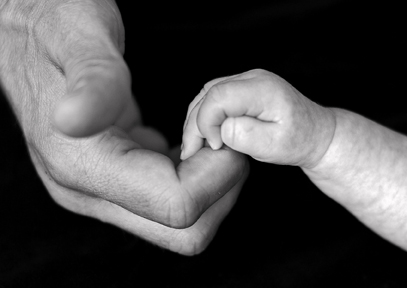What was left of her world was lying lifeless on a bier being carried out of the city to its resting place. She already lost her husband. Now her only son was dead. Besides the fact that she loved her son dearly, he was her means of protection and provision in her old age. Death had stolen from her everything but her own existence; all the joys of marriage and motherhood. She was left vulnerable to a leadership in Israel, who, even though they were supposed to help widows, devoured their houses (Lk 20.47).
As this widow moves with a great crowd through the city of Nain, mourning and carrying her son to his resting place with his father, Jesus and his entourage are drawing near the city gates. “Drawing near” certainly speaks of Jesus closing the geographical gap between himself and the city, but, with an understanding that later comes out that “God has visited his people” (Lk 7.16), the connotations of Luke have deep Scriptural echoes. “Drawing near” is what happens at the Temple through offerings. The worshiper draws near to God and God draws near to the worshiper. God comes to save and destroy; save his faithful people and destroy his and our enemies. God is drawing near to this city and, more specifically to this widow and her dead son, to do precisely that.
But within this story of Jesus’ great authority over death, we may skip quickly over the snippet of revelation that tells us “he had compassion on her” (Lk 7.13). If we are not careful, we may slip into an image of Jesus as some cold apologist who does all of these mighty works merely to prove who he is. Sick and hurting people are only objects that advance his personal agenda to win an argument against the scribes and Pharisees.
The reality, however, is that Jesus is compassionate. He cares about this widow who has lost everything, who is now left vulnerable to the powers-that-be, who hurts from the thievery of sin and death. His compassion moves him to heal. He uses his authority compassionately, in order to show mercy.
Sometimes in our theological circles, even though it may be unintentional, God is viewed as this dispassionate, aloof, all-powerful being that bureaucratically deals out rewards and punishments and acts to “prove himself.” It is the ultimate power-posturing. That is not how God reveals himself. Jesus, the perfect revelation of the Father, has compassion on this widow who has had the joys of marriage and motherhood stolen from her. He demonstrates what he will do ultimately for all those who trust him from whom sin has stolen the joys of life: he will raise all things from the dead.
Jesus cares about your pain, shame, mourning, and loss. He weeps with those who weep. Jesus may not be restoring the beauties of life with the immediacy with which we want him to do so, but he is revealed to us as one who is compassionate toward us. He cares about our pain. He is moved with compassion. His compassion took him to the cross for our sake, to defeat the very sin that had power over us. If his compassion took him that far, will his compassion not continue to move him to complete what he started?














